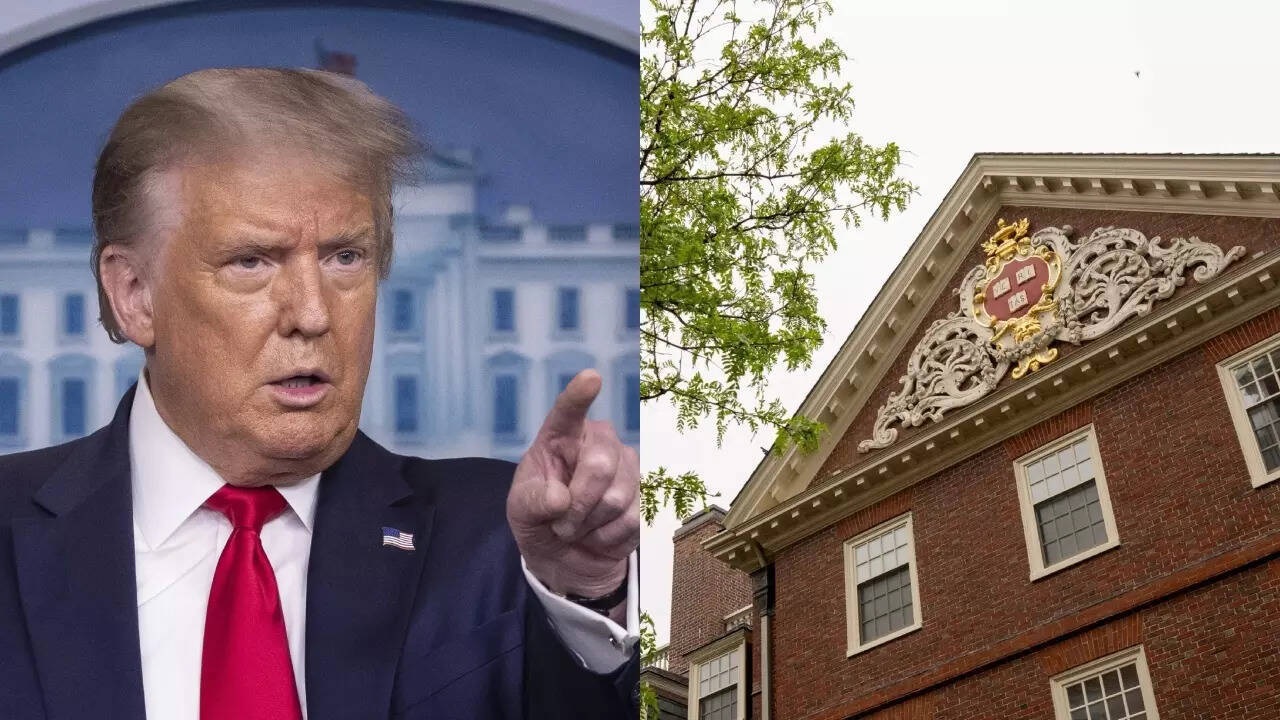A federal judge on Friday, June 6, 2025, has temporarily halted a proclamation issued by President Donald Trump that sought to ban international students from attending Harvard University.
The order, which came late Thursday, blocked Trump’s latest move aimed at limiting foreign student enrollment at the prestigious institution.
Harvard responded swiftly by filing a legal challenge the day after the proclamation was announced.
It argued that the action was an unlawful retaliation against the university for defying the administration’s earlier directives.
Harvard claimed Trump’s move was an attempt to circumvent an existing court ruling in its favor.
The proclamation, released on Wednesday, was designed to prevent foreign students from entering the U.S. to study at Harvard.
It marked the latest effort by the Trump administration to restrict the enrollment of international students.
These students reportedly make up approximately one-quarter of Harvard’s student body and contribute significantly to its academic and research output.
Just hours after the lawsuit was filed, U.S. District Judge Allison Burroughs in Boston granted a temporary restraining order against Trump’s proclamation.
In her decision, she noted that Harvard had successfully demonstrated it would face “immediate and irreparable injury.”
She said this would happen if the proclamation were allowed to take effect before the court could fully consider the case.
Burroughs also continued a previous hold she had placed on an earlier attempt by the administration to stop Harvard from enrolling international students.
That prior effort included the Department of Homeland Security revoking Harvard’s certification to admit foreign students and issue them visa documentation.
While the earlier action was blocked, Trump’s new order was based on a different legal justification.
Had Trump’s order been allowed to stand, it would have prevented thousands of international students from entering the U.S. to attend Harvard during the upcoming summer and fall terms.
The university is home to more than 7,000 students and scholars who hold F-1 and J-1 visas, along with their dependents.
In a court filing, Harvard described these individuals as being used as “pawns” in what it called the federal government’s intensifying campaign of retaliation.
While the legal battle unfolds, Harvard is working on contingency plans.
This is supposedly to allow international students and visiting scholars to continue their academic and research activities despite the uncertainty.
In a message to the university community and alumni, Provost Alan Garber emphasized Harvard’s global identity.
He highlighted the institution’s long-standing tradition of bringing together talented individuals from around the world.
Garber stated that the advantages of such global collaboration are “unique and irreplaceable.”
Over the past three decades, Harvard’s international student population has grown significantly, increasing from 11% to 26% of the total student body.
This rising international presence has made Harvard and other elite universities more susceptible to the Trump administration’s crackdown on foreign students.
Many Republicans have sought to reshape higher education institutions.
These Republicans view them as strongholds of what they consider to be “woke” and antisemitic ideologies.
In response to these political pressures, Garber said that Harvard has implemented measures to address antisemitism.
However, according to him, Harvard will not compromise its “core, legally-protected principles.”
The university has also faced federal threats to cut funding as part of broader attempts to influence policies on campus protests, hiring practices, and admissions standards.
Although Harvard’s massive $53 billion endowment provides it with a financial buffer, Garber warned that losing federal funding could still lead to “difficult decisions and sacrifices.”
More critically, the exclusion of international students and scholars could significantly harm Harvard’s research capabilities and diminish its global reputation.
Ultimately, the legal ruling represents a temporary reprieve for Harvard and its international community, but it also underscores the broader political and legal tensions surrounding immigration, education, and academic freedom in the United States.







